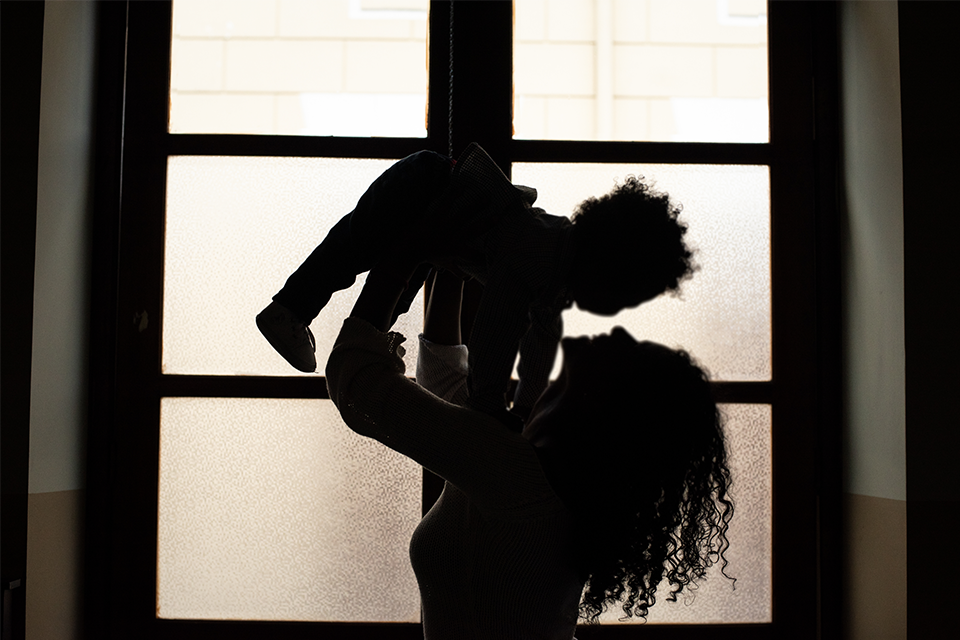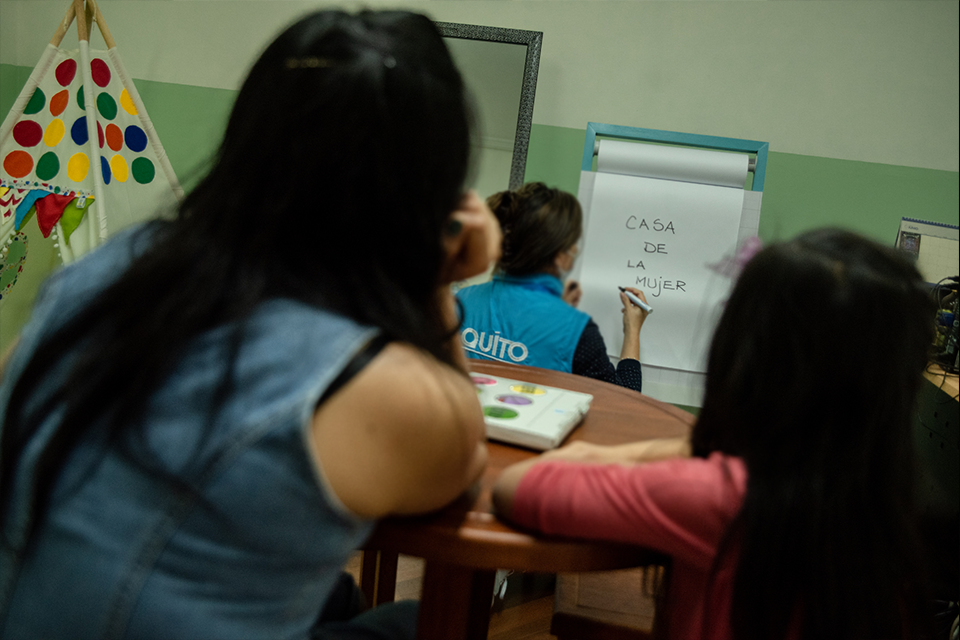A journey to a new life after violence: Ecuador's shelter homes
Date:
 Photo: ONU Mujeres / Johis Alarcon
Photo: ONU Mujeres / Johis AlarconAlicia P., is a foreign citizen who lived for four months in the Casa de la Mujer in Quito, after suffering economic, psychological and physical violence from her ex-partner. "They helped me here and now I feel strong. I am going to work with my family, and my greatest motivation is my son," she said before returning to her country of origin.
Ecuador is the country with the most refugees in Latin America and the Caribbean. As of February 2021, 70,452 people were registered as refugees. Against this background, women forced to leave their place of origin experience discrimination, xenophobia and labor exploitation.
Gender-based violence manifests itself before, during and after the migration process, and therefore represents a continuum in their lives; 8 out of 10 migrant women have suffered it throughout their lives; and seven out of 10 have suffered sexual violence, 40% perpetrated by irregular armed groups; and 7% by police or military.
The challenge of restoring women's rights in times of COVID-19
The Casa de la Mujer in Quito offers a temporary space for women like Alicia, survivors of violence, who do not have family or friendship support networks to receive them in their homes, or who, due to the danger to their lives, find it essential to stay in places with adequate protection.
The center coordinates its work with community resources and with the different services involved in resolving the problems and needs of families experiencing violence.
According to the National Network of Shelters, as a result of the pandemic, there was an increase in requests for shelter compared to previous years. Since January 2020, the Women's House has attended 71 women and 79 children.
In order to avoid contagion, the families who enter the center undergo a 12-day isolation period, and their outings are limited to medical and legal procedures in order to reduce risks. The pandemic has imposed new challenges in the face of increased demand for care services and greater restrictions.
Towards a new life
The Casa de la Mujer is part of the Network of Shelters and works based on the principles of participation, equality and non-discrimination with an intercultural, human rights, generational and human mobility (migrants) approach. The Municipality of Quito allocated approximately US$360,000 for its operation in the first year, a figure they estimate they will need every year.
During their stay at the Casa de la Mujer, which can last up to six months, the women and their families receive comprehensive care in which they rebuild their self-esteem and develop skills that enable them to start businesses for their economic autonomy, based on new life plans.
To this end, work is carried out in three phases: emotional support to begin to deal with the crisis, legal accompaniment to file the complaint and the protection order, and social work accompaniment for medical attention, if necessary.
Additionally, an action plan is developed to support life projects, in which capacities for autonomy are generated and a follow-up plan is made when they return to the community.

Support from UN Women
As part of the Caminando project, UN Women and CEDEAL work with professionals who provide services in six shelters, care centers, refuges and local prevention networks, located on the northern and southern borders of the country and in Quito, providing them with tools that promote the full exercise of their rights, empowerment and the elimination of all types of gender-based violence.
UN Women has been a strategic partner in supporting migrant women and has assisted the teams in establishing strategies to fill the gaps of the most vulnerable women. Without this support, these actions in these reception areas would be weakened.
Through specific actions in the areas of coordination, social work, facilitation, education, legal and psychological support, women's rights are restored so that they can continue to live a life free of violence, respecting their dignity and physical, psychological and sexual integrity, as well as that of their families.
More than a year after its opening, 50 women have started a new life thanks to the Casa de la Mujer, most of them migrants, a large percentage of whom have returned to their countries of origin. Currently, there are nine people in the follow-up stage, and they receive social and psychological support.
--